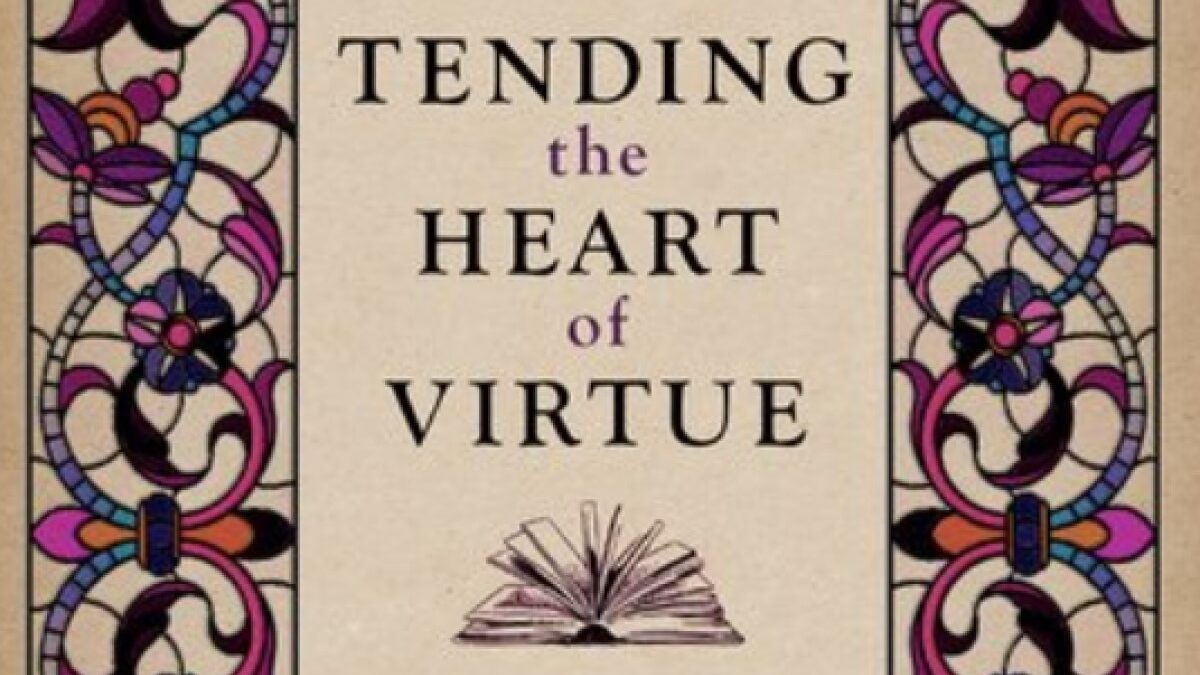
Here’s what I read in the Boston Globe from a reporter at a great books conference at St. John’s College in Santa Fe:
‘Conservatives no longer champion the Great Books idea as a solution to problems in higher education,’ [Mortimer Adler’s biographer Tim Lacey] wrote in an e-mail. ‘That curriculum isn’t front and center now. Today the discussion is about lowering cost, disrupting the entrenched education establishment, and promoting basic skills, via the Common Core, for the workplace.’
One piece of evidence for this conservative turn is that St. John’s is struggling when it comes to both money and enrollment.
For a good while, liberals have thought of “great books” initiatives as basically promoting a conservative agenda. But it turns out a lot depends on what you mean by conservative. Anyone with eyes to see knows that conservatism—including, of course, the Republican Party—has been morphing in a libertarian direction. There’s a growing consensus that social or religious conservatism is fading, and the ticket for Republican victory is to abandon its increasingly unpopular causes and focus on some combination of personal autonomy and economic liberty.
The big Republican donors are increasingly libertarian or, in some loose sense, Randian. The Koch brothers spent big money on the same-sex marriage effort in New York. Peter Thiel, the Republican/libertarian public intellectual of Silicon Valley billionaires, says social liberalism has won, and that’s basically a good thing. The real cause in America now is promoting faith in technological innovation and economic freedom (or deregulation) as the keys to our increasingly more liberated and abundant future. Thiel, who himself has benefitted from studying great books by Rene Girard and Leo Strauss and the various philosophers Strauss recommends, has no interest in promoting their study in American colleges and universities today. And even the Koch brothers’ educational agenda seems limited to promoting the study of the American founding in a way that promotes today’s techno-libertarian agenda.
Don’t Think—Do
Thiel’s recommendation to our best and brightest is that they skip college and get right down to the business of being entrepreneurs. One thing Thiel seems to have appropriated from Strauss read through the lens of techno-utopianism of Francis Bacon is that the political and religious founders of old have been displaced by the founders of startups today. The future will be post-political and, in any traditional sense, post-theological. There’s not much in the traditional or cultural content of liberal education that can help us today.
From Thiel’s view, the humanities in our colleges have been deformed by a stifling political correctness that turns our attention away from what’s really possible these days. Reigning intellectual authorities such as John Rawls have a kind of vague optimism rooted in banal thoughts about “fairness and distribution,” but they are “indefinite optimists.” They don’t give us the “specific vision of the future” most needed, a vision rooted in an “intelligent design” aimed at overcoming our natural limitations. So even our optimists, with their vague confidence in the progress of justice, cause us to be “set in our ways.”
The pessimistic philosophy of the ancient world was even worse, mistakenly accepting “strict limits on human potential” and turning higher learning into “cop[ing] with our tragic fate.” Modern philosophers, such as both Herbert Spencer and Karl Marx, were truthfully hopeful in “expect[ing] material advances to fundamentally change human life for the better.” Marx, Thiel reminds us, celebrated “the technological triumphs of capitalism” as the key to overcoming the scarcity we’ve been given by nature and entering the realm of absolute freedom. But Marx and Spencer were pretty clueless when it comes to really understanding the full potential of technology, particularly in our time.
Being Competent vs. Being Liberally Educated
From Thiel’s view, here’s what really is going on in higher education: “For the privilege of being turned into conformists, students (or their families) pay hundreds of thousands of dollars in skyrocketing tuition that continues to outpace inflation.” College is no place for the founders of tomorrow. If it has a place, it’s giving more ordinary people the skills and competencies required to function in the emerging techno-world. A college education should be cheaper, quicker, more technological, and less pretentious. Thiel does allow that our universities have a genuinely scientific mission in keeping people alive as long as they remain dependent on their biological bodies. He recommends that Harvard University establish a major in nutrition with the goal of unlocking nature’s secrets for personal longevity.
It’s not that Thiel is against reading great books. Both he and his fellow techno-enthusiast futurist Tyler Cowen appreciate the lessons about esotericism (or secrets) that come from Strauss, and they agree that only a few have the astuteness to see how the world is really going. Great founders should read the classics on their own time, outside the stifling confines of our institutions. Maybe it’s of no great benefit for most people to read them; the moralism of the philosophers won’t so much edify them as distract them from what they must do to flourish in a world where, as Cowen puts it, “average is over” and the illusory safety nets in which people have taken comfort are dissolving.
The best-selling, Straussian author Allan Bloom taught that the point of reading the great books is to learn the truth about being someone born to love and die. But Bloom himself also taught that the modern techno-progress promoted by individualistic philosophers such as Bacon and Locke had dissolved the relational contexts in which love flourishes and death has sacred meaning. In our time, sophisticated people are moved by neither love nor death, and they have become nothing more than clever animals or competent specialists. In our time, Bloom seemed to say, the choice is between being a philosopher—or living every moment attuned to the truth about one’s own insignificant mortality (philosophy is learning how to die)—or being “nothing,” or living with a “flat soul” or without any distinctively human content.
From Living in Love to Being Obsessed with Death
Thiel is surely right to criticize Bloom for thinking that people have stopped being traumatized by their ephemeral contingency and inevitable extinction. He’s also right to suggest that Marx couldn’t explain how a realm of unobsessed freedom is possible if people remain conscious and mortal. It turns out, according to Thiel, that there’s two inauthentic ways of dealing with death. One is inauthentically diverting oneself from thinking about it at all. The other is to accept it in a needlessly defeatist way.
For Thiel, the dogma of our time that most of all must be overcome is acceptance of the inevitability of death. Philosophy in the sense of living in the truth becomes learning how not to die. Religion and philosophy, from this view, typically promote the malaise of fatalism. But we singular beings, who refuse to be fodder for nature or God or politics, have reasonable hope that the Singularity that will transform us relational animals into something better will come. Our hope is in the “rational design” we—under the leadership of today’s great (startup) founders–will impose on our environment.
So it seems that great-books education in our colleges and universities remain relevant only for those who are somewhat ironic about both our techno-enthusiasm and our stifling political correctness. Because our liberals are, more than ever, about replacing “academic freedom” with “academic justice,” and our conservatives have become libertarian proponents of the goodness of whatever our techno-progress brings, then the constituency for genuine liberal education is shrinking fast. Liberal education remains only for those who think the one thing most needful is to know who we are as beings born to know, love, and die, and who both tragically and hopefully believe it is both inevitable and good that love and death have a future.
The Technocrat’s Brand of Diversity
The technological criticism of political correctness is true enough. Instead of getting people all angry about being oppressed for this or that reason, education should be about the true liberation that comes with have the skills and competencies required to flourish in our marketplace. The Silicon Valley of nerds and similar startup “communities” are all about diversity in the sense of not thinking of anyone as anything more than a productive innovator. It really is not about “who you are” as black, gay, a woman, or so forth, but it’s about what you can do. The emerging world might be really tough if you’re not young, smart, well-trained, and a self-starter, but it’s not a world where the angry identity politics of “women’s studies” (which usually manages to be the utterly worthless education that’s neither liberal nor vocational) has any credibility at all. Our libertarian futurists are all about the coming post-political and even post-biological future of unprecedented personal freedom, and you can’t be a part of the liberating innovations to come if you’re obsessed with being granted unearned “social justice.”
But our technophiles also overhype the liberating potential of technological progress, and we hope they don’t really mean to say that their reasonable hope is that artificial intelligence or “genius machines” will somehow take us beyond our loving responsibilities as beings who know, love, and die.
In general, the leveling of the relational and cultural content of higher education is driven by the prejudice that we have nothing to learn from the past either about justice or technology. Even Plato and Shakespeare were distorted by the prejudices of their time, including being stuck in a much earlier and so more ignorant place in the progressive, liberating history of the division of labor. We are privileged by our late place in the process that drives “the arc of justice” and our globalized overcoming of natural scarcity through the unprecedented ingenuity of rational and industrious labor. Far from being displaced persons uprooted, as Wendell Berry claims, from the social ecology that sustains responsibly loving personal significance, we’re far down the road to being secured in an environment that far more reliably sustains personal consciousness than the ones nature or tradition have given us.
That kind of Progressive confidence explains why many conservatives think that the best way to fight reactionary political correctness is by reducing professors to workers following scripted best practices in a high-tech environment. Higher education might soon be reduced to teaching our best and brightest, as Cowen says, to work comfortably with genius machines or to methodically manipulate those nerdy geniuses who bond so well with those machines. Everyone else, meanwhile, will do as well as they can by learning in a mostly online environment those skills and competencies that allow them to function well as cogs in a machine.
Fight Back with Ironic Exposure
The polemic in favor of saving liberal education begins with getting ironic about the hegemonic claims—the claims to absolute rule—of both politically-correct social justice and boundlessly disruptive technophilia. One tool, Arthur Melzer has reminded us in his “Philosophy Between the Lines,” is restoring an appreciation of the esoteric dimension of philosophic and other literary writing in the past. The job of a liberating education has always been to expose, responsibly and subtly, the extravagant claims for wisdom that dominate public life and authoritative institutions in any particular society. One thing we learn is that writers of the past, such as Plato or Aristotle, didn’t really buy the patriarchal rationalizations for injustice in their political communities. And that should teach us now not to buy the various rationalizations for the techno-domination of ordinary people today. Those are the arguments of the sophists, those who think that our educational issues can be resolved by technocratic expertise, that knowledge, as Bill Gates brags, can be distributed in much the same way electricity or online connectivity can.
Unlike, say, in Greece and Rome or some medieval village or Puritan New England, the dominant prejudices today—promulgated as enlightened competence by the experts—incoherently combine relativism, scientism, and atheism. So it turns out that esotericism—or clever, indirect writing that obscures the inconvenient or seemingly untimely truth—might today be about telling the truthful good news about God, the good, and the rational and virtuous life to a dogmatically skeptical audience. We can already see, of course, that professors in our mainstream universities can no longer say straight out what they believe through faith or even that what our evolutionary psychologists think they know through science doesn’t go very far in describing the observed behavior of members of our species. It’s true that none of our professors fears the fate of Socrates, but worse than death for a person of ideas might be marginalization or, as they say, exclusion from the rational conversation appropriate for a liberal society.
In any case, we should value any book or other mode of communicating that ironizes—or gives us a critical distance from—our prejudices in favor of the comprehensive liberating potential of both justice and technology. The liberation, in each case, is real, but it’s not complete, not what we most need, and includes corresponding forms of enslavement or self-deception.
The Great Books Give Us Critical Distance
Everyone knows that any life consumed by the enjoyments of the screen is marked by emotionally crippling abstraction and distraction, and that true teachers of philosophy, literature, and theology do what they can to get students to leave those screens alone enough to know what it’s like to take pleasure in being alone with yourself with others or in love in the present with another person with a body. Everyone also knows that, contrary to what the politically correct think, being shaped by one’s relational biological imperatives is, far from being the slavery of suckers, our only way to reliably free ourselves from the slavery of being locked up in one’s self. Thinking through both these modes of “experiential knowledge,” however, take us far beyond the angry reductionism of political correctness and the post-biological hopes of the technological promise of the Singularity or at least indefinite longevity.
The Catholic philosopher and novelist Walker Percy wrote on occasion about, in effect, writing esoterically or hiding his true or evangelical message in the forms of modern science and the existentialist novel. We also know, of course, that Flannery O’Connor deployed her violent and jarring stories as a kind of shock therapy to arouse us from our death-in-life techno-diversions as a preparation for wondering anew about the goodness and gratuitousness of created being.
The main reason we should cherish liberal education as “great books” is that they almost all are—whether written in the form of prose, poetry, plays, or novels—poetic in this sense: They are all about showing, rather than telling. One of the great prejudices of our time is that the truth can be reduced to theory and information expressed directly through “critical thinking” that can, in principle, be displayed through logically ordered PowerPoint slides. But the strangest and most wonderful being in the cosmos—each of us—is too elusive and mysterious to be known through that mode. This means the poetic, indirect, or slow and circuitous mode of knowing could be even more rigorous and rational in its own way. The reason Socrates didn’t write at all, and the reason Plato wrote “dialogues” or really wordy plays, is that books themselves can so readily get in the way of wondrous love and “the joy of discovery” if they are viewed as one-dimensional prose. The difference here is the one between the “great book” or even a “real book” and the “textbook.”
The one true progress has little to do with political institutions or technical devices: It’s the progress that occurs in the directions of wisdom and virtue over a particular unique and irreplaceable human life, and our struggle today is to remember to focus at least some of our higher education on encouraging that personal progress.









